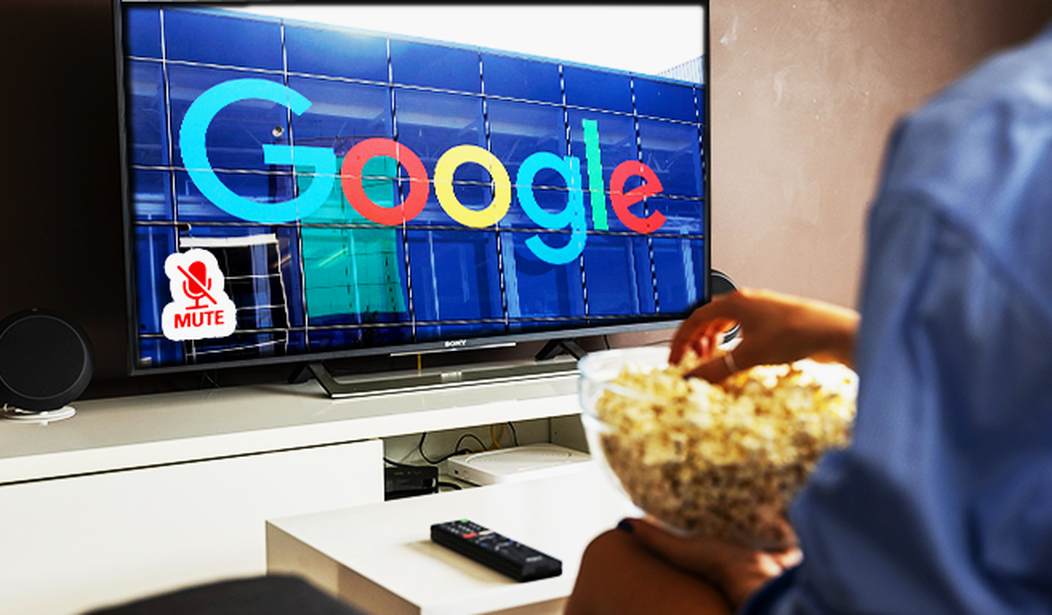Google has certainly found itself in hot water again as we approach another presidential election. Earlier this week, it was revealed that the Harris-Walz campaign has been editing headlines from various publications, and then using those edited headlines in paid Google ads. Such a move has not gone unnoticed by House Republicans.
NEW — Harris campaign accused of REWRITING news headlines in paid Google ads to manipulate users.
— Townhall.com (@townhallcom) August 14, 2024
Google blames "a glitch in their system" for the failure to disclose the manipulated advertisements.
"Well that's cheating!" pic.twitter.com/kd5fgmJP7W
On Wednesday, Rep. Lance Gooden (R-TX) penned a letter to Sundar Pichai, the CEO of Alphabet, Google's parent company.
In his letter, Gooden warns that such findings, as revealed in a recent report from Axios,"signify a deliberate attempt to mislead voters by falsely suggesting endorsement from major news publications." He went on to point out that such a tactic, "which involves editing headlines within Google ads to imply endorsement, operates within a gray area of Google's advertising policies but raises profound ethical and legal questions regarding election interference."
Gooden also points out that "Google's position that these manipulations do not breach their advertising policies does little to ease concerns about this blatant attempt to deceive voters and interfere in the 2024 Presidential election."
The letter goes deeper, as it references overall concerning policies involving censorship, such as the July 13 assassination attempt against former and potentially future President Donald Trump, and how other platforms have taken steps to correct issues that Google has not:
Recommended
Responses from the media entities mentioned in these ads, such as The Guardian, have expressed concerns over the misuse of their brands, reflecting broader implications for media credibility and public trust in journalistic sources. Unlike Google, Facebook ended the disingenuous practice of allowing campaigns to purchase favorable headlines and descriptions that appear with them in 2017, citing their "continuing efforts to stop the spread of misinformation and false news”. It is crucial for Google to protect the integrity of the upcoming election by implementing clear guidelines to prohibit political campaigns, like the Kamala Harris campaign, from intentionally manipulating results on your platform to mislead voters.
Google has a disturbing track record of implicit bias and election interference that overwhelmingly benefits one political party. There have been numerous attempts this election cycle by Google to hinder former President Donald Trump’s ongoing campaign for the presidency, including censoring stories relating to the July 13 assassination attempt on him in Pennsylvania; Google searches for President Trump mostly returning and prioritizing results to show positive stories on Kamala Harris first; and Autocomplete not showing President Trump’s name in response to searches for “President Donald” and similar terms.
There even looks to be a violation per Communications Act of 1934, 47 U.S.C. § 315,which was amended by Telecommunications Act of 1996.
"The systematic bias in disseminating information to disproportionately benefit certain political parties or candidates may be violating federal law that ensures equitable treatment of electoral candidates by broadcasting services," Gooden points out, also mentioning violations under the Federal Election Campaign Act. "Rest assured, all efforts to ensure transparency and accountability at Google ahead of the 2024 election remain on the table," the congressman warns.
Gooden is looking for answers by September 3rd to the following questions:
1. What specific protocols has Google implemented to ensure that voters can easily recognize when news content has been altered or sponsored by political entities? Please provide details on any visual cues or disclaimers that will be made clear to users.
2. Since Google's advertising practices negatively impact the reputation of established media brands, what steps is Google taking to prevent manipulation of news by political campaigns and advertisements? How does Google plan to uphold and protect the integrity and public trust of media outlets whose names or content might be co-opted in ads?
3. Recently, your company claimed, “Google is committed to fighting the spread of misinformation online. We take the task of providing access to high quality, trustworthy, and credible content very seriously”. How does Google reconcile this stance with the monetization of political ads that may contain manipulated headlines or misleading content? What ethical guidelines or standards does Google enforce to balance profit motives with the imperative to provide truthful and reliable information?
4. What is the total revenue Google and its associated companies have accrued from political advertising during the current election cycle?
5. All internal policies or any other documents related to how Google Search ads are designed, reviewed, managed, and updated to take into account and incorporate recent newsworthy events.
6. All internal policies or any other documents related to how Google Search ads feature is designed, trained, managed, reviewed, or updated to edit headlines on stories they didn’t create.
In sharing the letter to his X account, Gooden pointed out problems form previous elections as well. "Google interfered in the 2020 election through the censorship of the Hunter Biden laptop story," he reminded.
Google and various social media platforms censured The New York Post's coverage of Hunter's laptop just weeks before the 2020 election. Such censorship issues certainly look to be a problematic pattern for Google.
Google interfered in the 2020 election through the censorship of the Hunter Biden laptop story.
— Lance Gooden (@Lancegooden) August 14, 2024
Now they appear to be interfering through shadow banning Trump-related searches & allowing Kamala Harris to manipulate article headlines.
This cannot continue. Read my letter to… pic.twitter.com/P8s2jGFL8R
In addition to Gooden's letter, House Oversight Committee Chairman James Comer (R-KY) also sent letters to Pichai and Meta CEO Mark Zuckerberg on Wednesday when it comes to censorship of the assassination attempt, as Katie covered at the time.
Is Google Censoring the Trump Assassination Attempt While a 'Glitch' Benefits Kamala?
— Townhall.com (@townhallcom) August 14, 2024
https://t.co/HnMKMvbTcO

























Join the conversation as a VIP Member